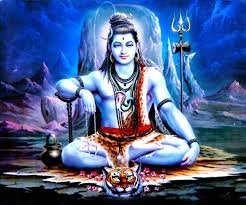Shravan Maas is the fifth month in the Hindu calendar. In 2014, as per Gregorian calendar Shravan Maas will commence on 13 July and will last till 25 August 2014. During this month, on the full moon day the Shravana Nakshatra rules the sky, thus the whole month gets its name as Shravan Maas or month. The month of Shravan, often referred to as Sawan is the holiest month of the year as the entire month is dedicated to Lord Shiva. Many ancient Vedic texts speak about the importance and auspiciousness of the holy month of Shravan.
Each day of the Shravan month is considered auspicious more so Mondays (Somvars) are considered as the best days to fast and to worship Lord Shiva. Numerous festivals are celebrated during the month of Shravan such as Nag Panchami, Krishna Janmashtami, Raksha Bandhan and many more. It’s highly auspicious to wear Rudraksha In the month of Shravan and offer worship and do abhishekam for Lord Shiva using Bel Patra, Milk, Ganga Jal, Curd, Ghee, Honey, Sugar, Coconut Water, Sugarcane Juice, Lotus flowers, Datura fruit and much more.
During the Shravan Month and especially on Shravan Mondays devotees throng to Shiva temples big and small to offer prayers to Lord Shiva and seek health, wealth and prosperity. Various Pujas such as Shravan Maas Shiv Pujan, Laghu Rudra Abhishekam, Maha Rudra Abhishekam, Shiva Mantra Japa, Maha Mritunjaya Mantra Japa are offered to Lord Shiva during the month of Shravan. During Shravan Maas, women observe fast on Mondays and recite the Shravan Somvar Vrat katha so as to find a good husband.
As per Legends it was in the month of Shravan that the Samudra Manthan took place. And it was on a Monday in the month of Shravan that Lord Shiva drank the Halahala poison that emerged from the Samudra Manthan. Shravan Maas is also an excellent time to get in touch with one’s spiritual side, do meditation and Mantra Japa especially Maha Mritunjaya Mantra and the Maha Mantra ‘Om Namah Shivaya’.




